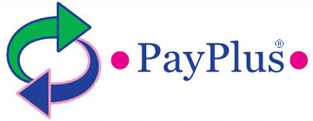IRS: Latest info on when free meals provided to employees are taxable New Memo answers common questions about on-site food The IRS just released some helpful guidance on a confusing scenario: whether to count free meals given to employees as taxable income. According to a new Technical Advice Memorandum (TAM), meals provided by employers are taxable in most cases. Generally, for meals to be excluded from workers’ income, two situations must apply, as listed in Internal Revenue Code Sec. 119 – the meals are: Provided on the employer’s business premises and Furnished solely for the employer’s benefit. In the TAM, the IRS answered a question about an employer’s policy for providing free meals on site. The employer claimed it had multiple reasons for providing meals, including fostering collaboration between employees, encouraging workers to stay on premises, protecting proprietary business info and keeping workers safe. However, the agency said that none of these reasons the employer gave would make the meals excludable. The burden is on employers to prove free employee meals fall under the Sec. 119 exclusion. Companies must provide adequate policy documentation that links the meals to business necessity. Bottom line: If an employer can prove workers need these meals to do their jobs, the exclusion would apply. Impact on delivery services Besides general clarification, the IRS also discussed another wrinkle that could impact employers’ eligibility under Sec. 119 – meal delivery. With the rise of delivery services such as Grubhub, it’s easier than ever for employees to obtain meals while working, eve in remote areas. So employers may have to provide additional proof that it’s absolutely necessary to furnish free food on site. Ultimately, the agency said, the facts will vary based on each individual employer’s circumstances. While meal delivery may keep some companies from qualifying for the exclusion, other may have valid security reasons.
IRS: Latest info on when free meals provided to employees are taxable
Recent Posts
Archives
- May 2025
- April 2025
- March 2025
- February 2025
- January 2025
- December 2024
- November 2024
- October 2024
- September 2024
- August 2024
- June 2024
- May 2024
- April 2024
- January 2024
- December 2023
- November 2023
- October 2023
- September 2023
- August 2023
- July 2023
- June 2023
- May 2023
- April 2023
- March 2023
- February 2023
- January 2023
- December 2022
- November 2022
- September 2022
- August 2022
- July 2022
- June 2022
- May 2022
- April 2022
- March 2022
- February 2022
- January 2022
- December 2021
- November 2021
- October 2021
- September 2021
- August 2021
- July 2021
- June 2021
- April 2021
- March 2021
- February 2021
- January 2021
- December 2020
- October 2020
- September 2020
- July 2020
- May 2020
- April 2020
- January 2020
- December 2019
- November 2019
- October 2019
- September 2019
- August 2019
- July 2019
- June 2019
- May 2019
- April 2019
- March 2019
- February 2019
- January 2019
- December 2018
- November 2018
- October 2018
- September 2018
- August 2018
- July 2018
- June 2018
- May 2018
- April 2018
- March 2018
- February 2018
- January 2018
- December 2017
- November 2017
- September 2017
- August 2017
- July 2017
- June 2017
- May 2017
- April 2017
- March 2017
- February 2017
- January 2017
- December 2016
- November 2016
- October 2016
Categories
- 2017 Tax Changes
- 2018 tax changes
- 2019 tax changes
- 2021 Tax Changes
- 2022 Tax Changes
- business expenses
- Checking Email
- compensation
- Covid-19
- deductions
- Department of Labor, labor regulations
- direct deposit
- EEO-1 Regs
- employee benefits
- Fair Labor Standards Act (FLSA)
- FFCRA
- FMLA
- Form I-9
- Garnishments
- Hacking
- hiring
- Identity Theft
- Independent Contractor
- New hire
- Overtime
- Recordkeeping
- reimbursement
- Remote work
- retirement plan limits 2020
- Scammers
- Social Security Limits
- tax rates
- taxes
- Timekeeping
- Uncategorized
- unemployment
- W-2s
- W-4s
- W2 Requirements

Recent Comments